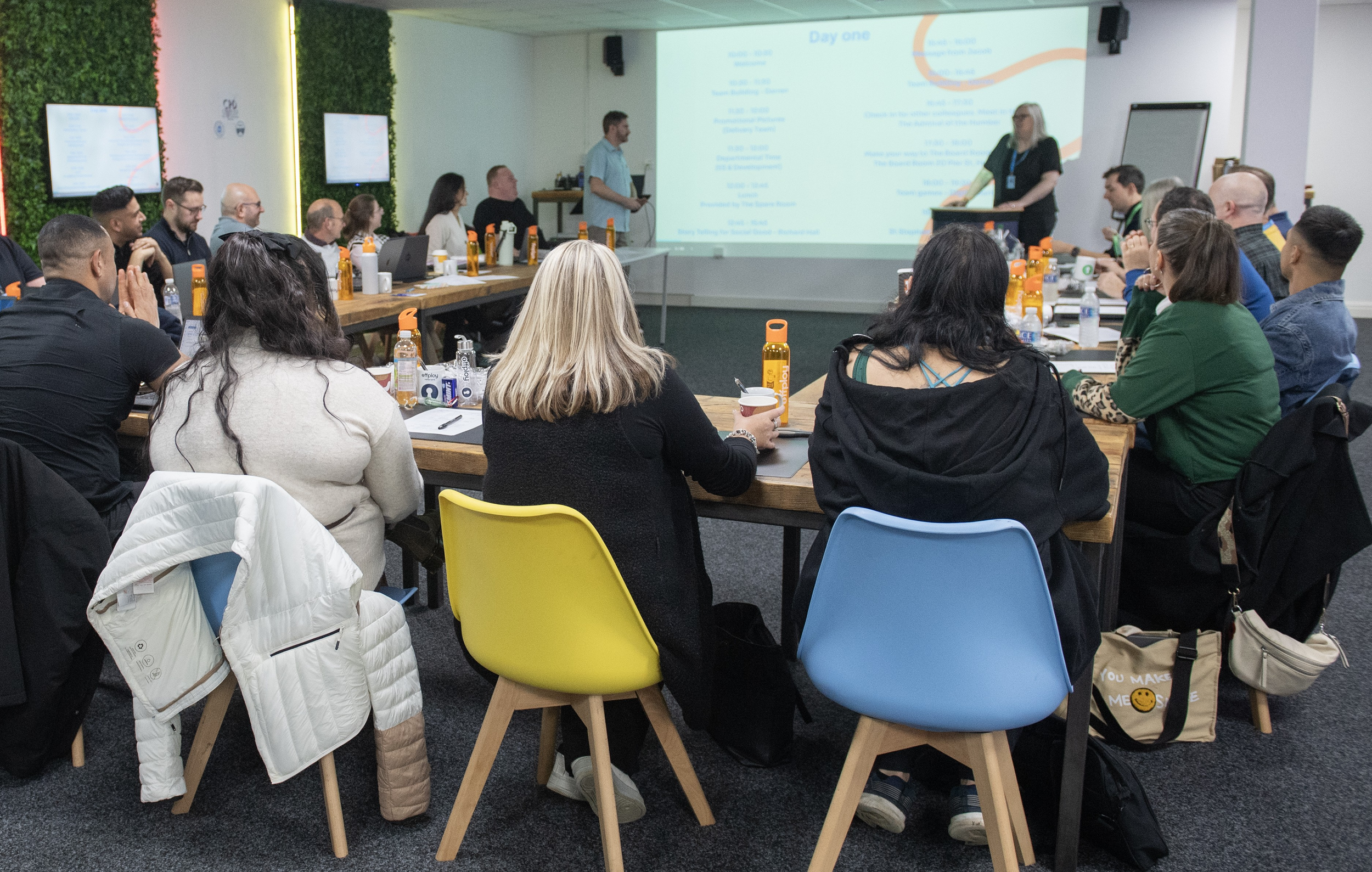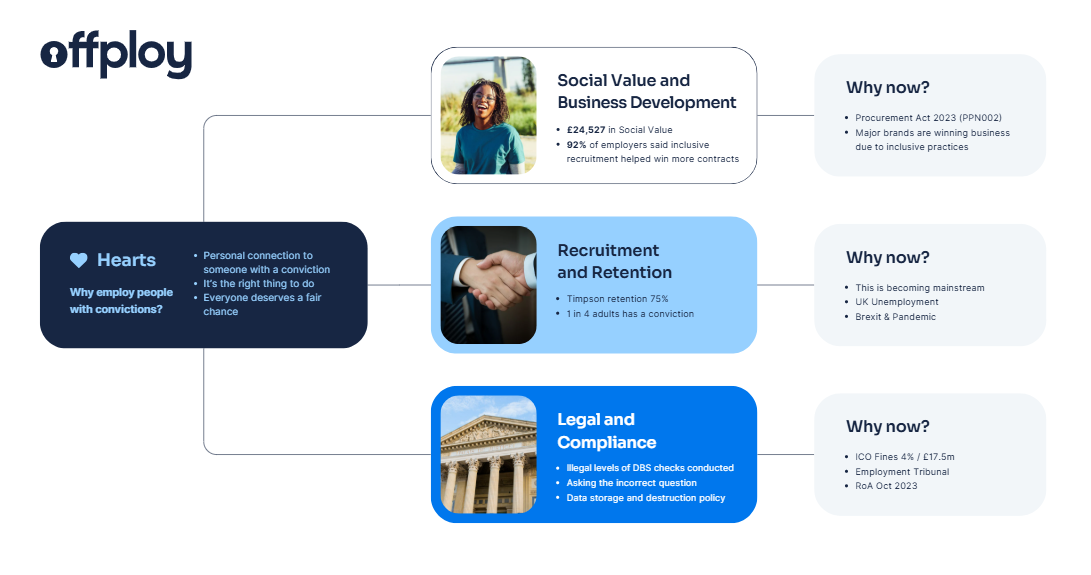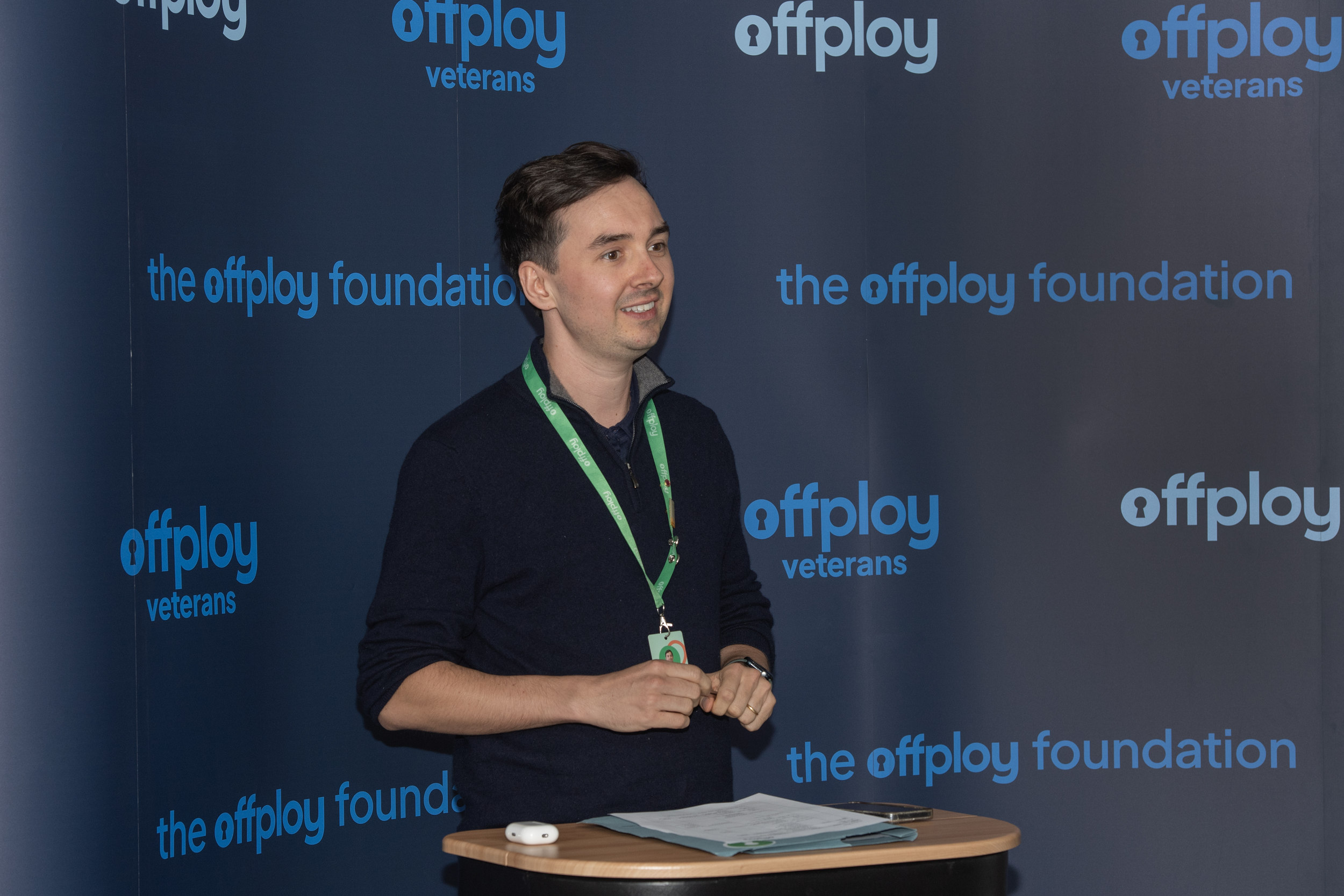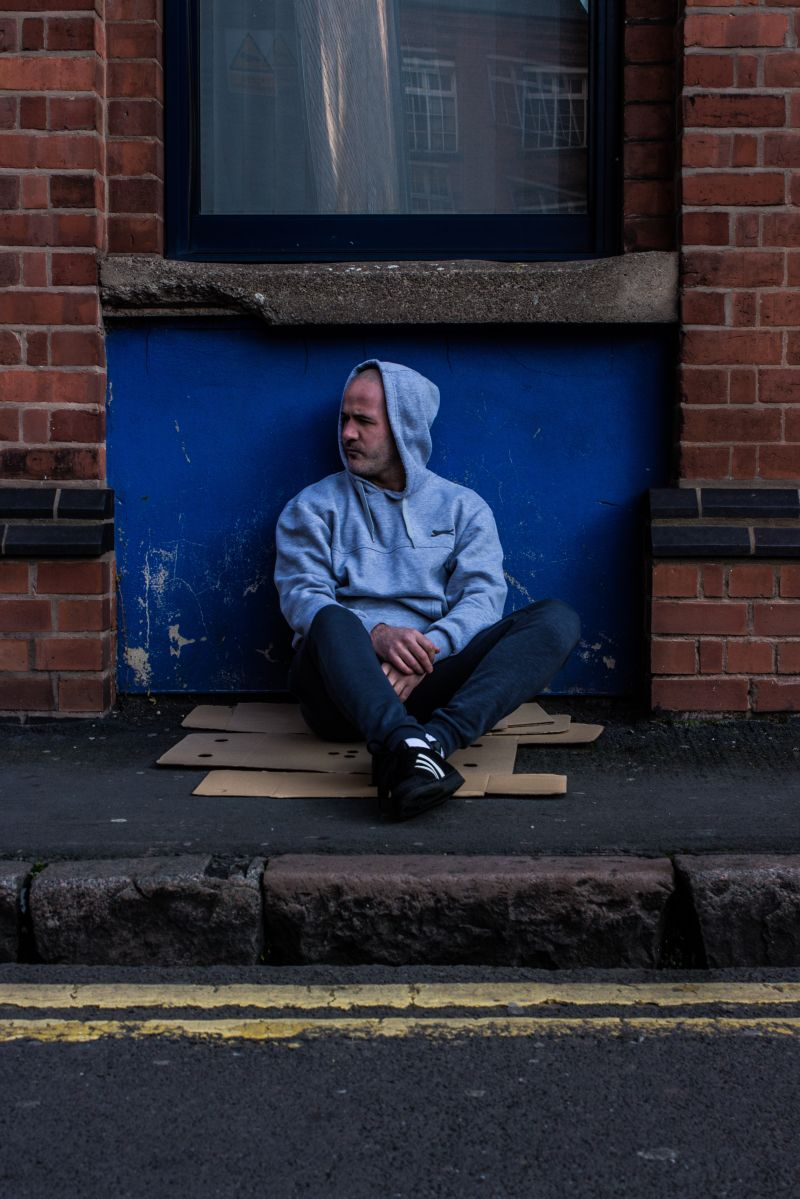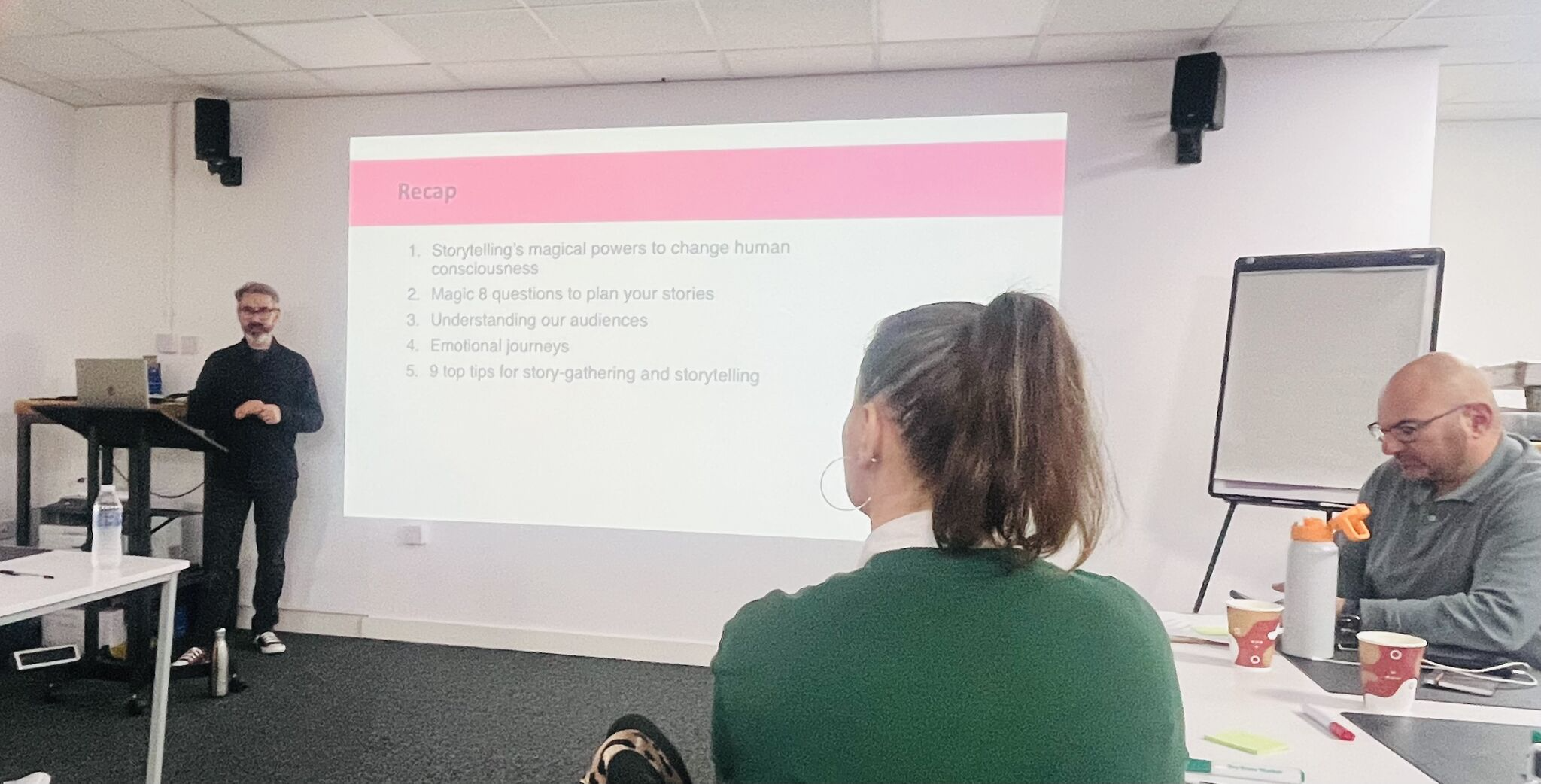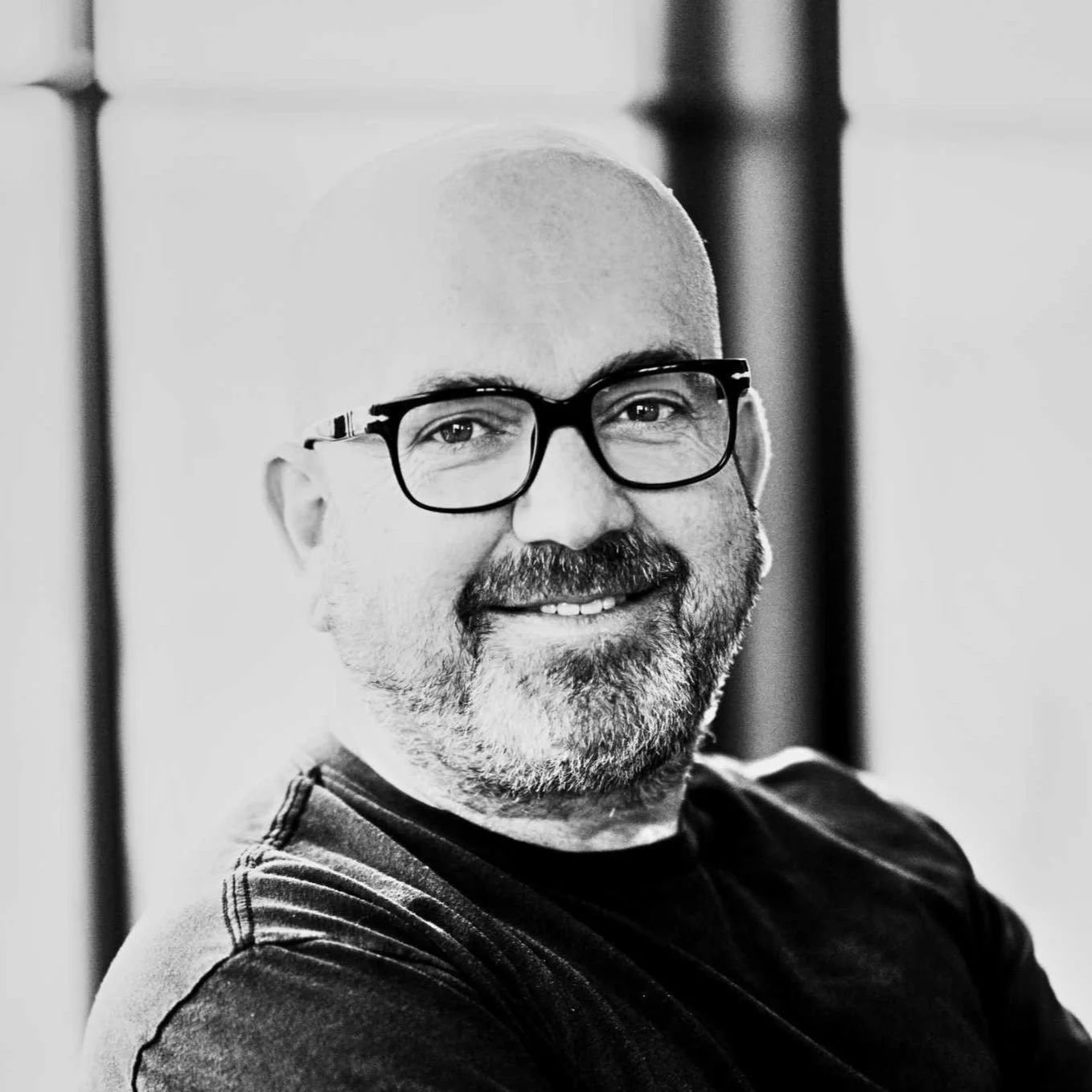Jacob Hill On Inclusive Employment Driving Systemic Change In Criminal Justice
Jacob Hill is the founder of Offploy CIC, a social enterprise that helps individuals with criminal convictions secure meaningful employment and overcome the barriers they may face during their rehabilitation.
As a former prisoner, Jacob brings lived experience and deep insight to his mission of transforming lives through inclusive recruitment. Offploy works across the UK with employers, government bodies, and community organisations to create pathways to work for those often excluded from opportunity.
Jacob’s journey, from being a prisoner to becoming a social entrepreneur, offers a powerful message of resilience and reform.
Jacob discusses how inclusive employment enterprises are breaking down stigma and driving meaningful change for people exiting the criminal justice system, and why social entrepreneurs must prioritise long-term commercial sustainability to maximise impact and lead with purpose.
Highlights from the interview (listen to the podcast for full details)
[Indio Myles] - To start off, can you please share a bit about your background and what led you to social enterpreneurship?
[Jacob Hill] - I’ve always loved entrepreneurship. There was a strange turning point when I was about 16 years old where I realised I could either try to win the lottery to become a millionaire or pursue this thing called business. You can pay a pound or a dollar a week on lottery tickets and hope to win, or you can create your own fate by working hard to see results.
I wasn’t very productive in school in terms of academic performance; I was always coming up with B and C grades. But I excelled at entrepreneurship; things like selling sweets in school and organising music events really spoke to me. I was the best student in the school at entrepreneurship, and I loved it. It’s where I got recognition and that feeling of success.
Then life happens, things get in the way, and you end up going through a real downturn, which I’m happy to talk about in a bit. You start to realise there’s more to life than chasing money, and that those skills can be used not just for your own betterment, but for the betterment of others.
That’s where social entrepreneurship really filled the gap for me around purpose. I’m proud to say I’m a social entrepreneur, and that didn’t come naturally. It took time to build up to that.
As the founder of Offploy, can you share a bit more about this social enterprise and how is it supporting people exiting the criminal justice system?
When we think about a person with a criminal conviction, I wonder what comes to mind for your audience. I used to think of someone in pinstripe prison uniforms, maybe something from Prison Break, Orange is the New Black, or The Shawshank Redemption. But actually, in the UK, one in four adults of working age have a criminal conviction.
The first thing I try to do is shift the audience’s perception of what it means to have a conviction. It could be someone who’s been to prison, but it’s worth knowing that judges only sentence one in ten people to prison. The other nine receive community-based sentences. So what does Offploy do?
Offploy works with individuals to mentor and support them to achieve their life’s potential. We work with people at risk of offending. Our mentors and wider team have all been through the criminal justice system themselves. For us, it’s about seeing individuals prosper in life.
When people with convictions are given purpose and direction, they stop being criminals. Desperation disappears and it becomes about building something positive, rather than just trying to survive. The work we do is twofold: mentoring individuals with convictions, and supporting businesses to hire people with convictions (people like myself).
What are some of the most persistent myths, misconceptions or stigmas you have come across, especially when it comes to hiring people with a history in the justice system?
First and foremost, people assume “people with convictions” means “prisoners”. That’s not always the case, and even when someone has been to prison, it’s important to understand that anyone can end up there.
I ask our audience to reflect on a time when they could have ended up in trouble with the police for something they did. Sometimes, all it takes is for that trouble to be discovered, for police to be informed, and for the formal process to begin. Before you know it, you’re caught.
That wasn’t exactly what happened to me. I got into a load of debt, made some stupid and regretful choices, and got involved with drugs at a music festival. I was arrested and sentenced to 28 months in prison. It’s worth saying that I’m the son of two police officers, and my dad’s a drugs investigator. I absolutely turned my family’s world upside down.
When I went to prison, I expected to find evil or horrible people. But what I mostly found were desperate people. I’m not excusing their crimes. I’m saying that if people weren’t living in poverty, weren’t rejected by the school system, and had opportunities, mentoring, support, friendship, or help with drug or alcohol addiction, then they’d be less likely to commit crimes in the first place.
Again, I’m not making excuses for individuals who commit crimes. But I also don’t think society should get away with excusing itself by saying, “They’re bad people, so they deserve to be there.” We need to think about what’s our role as a society?
I think a major misconception is society views people with convictions as “them”, the criminals over there. Then, it sees itself as “us”, law-abiding citizens. But the truth is, we can all end up going down the wrong path sometimes.
How does inclusive hiring address recidivism, and what barriers do you see preventing it from becoming mainstream in society?
I can give you some important statistics. Someone in a job is about six to nine percentage points less likely to re-offend. But as an employer, I don’t want “less chance” of re-offending; I want zero re-offending. So going to an employer and saying, “By making an inclusive hire, you’ll make society safer and reduce re-offending by 9%,” doesn’t always land well. Their reaction might be, “Wait, there’s still a chance of re-offending?” That’s not the message they want to hear.
What we should be saying is, “This person has turned their life around. Your job will give them the future, the stability, and the purpose they need to keep going.”
We’ve done a lot of work on Google AdWords to understand how employers are searching for things like “employing people with convictions” or “employing ex-offenders”. What we found is that search volumes are four, five, maybe eight times higher for terms like “inclusive hiring”. But even that is dwarfed by search volumes for things like “filling talent gaps” or “increasing retention”.
It’s not about coming in from a fringe, left-field case of saying, “We should be more inclusive as an organisation.” Businesses exist to make a profit and they’re there to serve the bottom line. Inclusivity can sometimes be lip service, or something driven from the top as part of the culture.
But how do we make that consistent across every organisation? For me, it has to tie back to their business case. We can help them fill vacancies and show that people will stick around longer than any other employees they’ve hired. We can prove it’s good for their reputation.
No matter what your inclusive hiring approach is, whether you support refugees, people from minority ethnic backgrounds, or those with disabilities, it’s not about saying, “This is the right thing to do for this group.” It’s about showing how it supports their core business function. If you’re not making that connection, then the business won’t prioritise your cause.
What advice would you offer to traditional business owners looking to integrate inclusive hiring or impact activities into their work?
I would say: always have a business case. That should be music to their ears as business owners. They should be asking, “What are we trying to drive here? What are we trying to achieve?”
Do we want to be seen in a positive light by the environmental community, or by people concerned with social impact? Or are we trying to address internal challenges within the organisation? For example, why does being more pro-environment help the business? What does it do for the bottom line?
I once heard a story about a large steel company. The CEO, like most CEOs, was accountable to shareholders and profit margins. But their workplace safety rating was something like 3%, while the best-in-class rate was 0%. So they focused purely on safety and getting that number down to 0% incidents or deaths.
The result? Profits skyrocketed. They realised that creating a better, safer working environment made employees feel valued, and in return they got more from their workforce.
The same logic applies to employing people with convictions. Retention rates in that group are through the roof, because of the loyalty these employees feel toward an employer who gave them a chance instead of turning them away.
We need to flip the script and get employers thinking: “How is our retention?” In retail, for example, retention is often just 30 to 40 percent. The turnover is huge. But for people with convictions, retention in the retail space is around 75 percent. That’s phenomenal. It’s good for business because it reduces hiring costs, stabilises teams, and improves culture. If you get that right and reap the business benefits, the inclusive part will follow naturally.
Within Offploy, 70% of your team has lived experience of the justice system. How do you approach building a culture of trust and incorporating those lived experiences into your work?
We’ve got to stop doing things to people and start doing things with people. My own lived experience is ageing because I’ve been out of prison for 10 years. I still carry the trauma and the memories of having a cell door locked behind me, but that was a decade ago. The prison system was different then.
That’s why it’s so important that we continue to employ people with convictions. I still benefit from that lived experience, but it’s the newer experiences that are really vital to keep us grounded and relevant.
We’re a social enterprise and a nonprofit, but we turn over a million pounds a year. In our first year, we were doing about £30,000 or £40,000. So we’ve grown significantly because we’ve been able to find incredibly talented people.
We get access to that talent pool before anyone else because we’re an inclusive employer. People apply to us and often accept lower salaries because they know we’ll look past their criminal conviction. That’s not exploitation, and we make zero profit each year. Everything gets reinvested into the work we do. It’s simply all we can afford, being a government-funded social enterprise.
But what we do get is access to talent far beyond what our salary bands might typically attract. These individuals know we’ll overlook their conviction, and they get to contribute to a service they’ve likely experienced themselves. They align with our mission, and they’re driven by a purpose to help others not go down the same path.
Having mission-driven people is a huge asset. For us, that mission is around people with convictions. But if you’re an organisation that works with people over the age of 50, for example, guess what? People over 50 really need jobs right now. Why aren’t you hiring them?
They know what’s needed from your service. I believe every nonprofit should be represented by the people who are actually going through what your service users are experiencing.
What advice would you offer to a purpose-driven leader or social entrepreneur looking to build an impact-led business or adopt inclusive employment pathways?
I’d say you’ve probably got a load of passion and a load of insight as a leader, so start building digital assets around that. Turn it into webinars, write documents people can download, and give it away for free to as many people as possible. Because guess what? That will attract clients, it will attract funders, and it will attract your next amazing colleagues.
I’m asking leaders to become a key person of influence. Celebrate the work you do and the knowledge you have. That process will help you refine your thinking and clarify your offer to employers. It’ll help you show up on podcasts like this one with the confidence to say, “You should be doing things this way.”
Know where you stand, because to know where you stand, you’ve got to create the documents, create the resources, run the webinars, and get your voice out there.
People will be inspired by your passion as a leader. I hope that shines through in what I’ve shared today, because it’s something I care deeply about and that I’m knowledgeable in. I hope other leaders do the same.
What inspiring projects or initiatives have you come across recently making a difference or creating an impact, inside or outside of your field?
I’ve been really inspired by something called the Acumen Fellowship. It’s a global fellowship for leaders in the social impact space to connect with other leaders and scale their impact. I believe they’re just closing their doors now, but the experience was incredible.
I was on a call where a few of the fellows were sharing their stories, and some were running small teams of ten, while others were leading organisations with over a hundred staff. That scale and diversity was amazing.
I’d recommend getting involved in a fellowship like Acumen. There are others too, like the 100x Impact Accelerator. These are global initiatives, and they’re powerful because they bring you into a circle of peers who can support and challenge you.
Also, surround yourself with people who inspire you. Listen to podcasts (like this one). This podcast is a great project because it gives you access to leaders working in this space. It’s almost like you’re listening to a friend, something quite intimate ,in a 20-minute discussion. For me, projects like this and the Acumen Fellowship are really encouraging because they allow us to learn from others.
What books or resources would you recommend to our audience?
I’ve already mentioned Key Person of Influence by Daniel Priestley. It’s a fantastic book about how you, as an individual, can become a key person of influence in your sector or space. It’s essentially about how to become one of the most valuable people in your industry.
The other book I’d recommend is 4,000 Weeks. It’s based on the idea that we have roughly 4,000 weeks on this earth. Not all of us get even that much time, so it’s a powerful reminder to appreciate the time we do have. It’s an incredible book for time management as mortal people. I couldn’t recommend it enough for anyone wanting to reconnect with what truly matters in life.
Any final thoughts you’d like to share with our audience?
I’m incredibly commercially driven. It just so happens that any surplus or profit we make gets reinvested into the business. That probably makes me a terrible entrepreneur by traditional standards, no yachts or dividends here! But I’d rather see those funds go toward creating more impact.
I want to encourage social entrepreneurs to be entrepreneurial and not to be embarrassed or ashamed of that. I used to feel awkward about being commercial, mostly because I came up through the charity sector. We’re close cousins with both the charity and corporate worlds, though we often resist associating too much with the corporate side, and lean a bit more towards the charity model.
But I’ve seen charities closing their doors. Sometimes that’s a good thing as they’re choosing to “descale” because the world no longer needs their service, and I love that idea.
At Offploy, our mission is to see a world where every person is safe from crime. To reach that vision, we need to start addressing wider systemic issues, whether that’s hate crimes, injustice, or discrimination. None of that can happen without a sustainable business model. That’s why I focus on long-term commercial acumen over short-term social impact.
I know that sounds counterintuitive, but we would sooner take a project that has a larger surplus than one with slightly more impact but less sustainability—because we want to be here in 5, 10, 15, even 20 years, delivering consistent impact for people with convictions.
I’d ask leaders to reflect: What are you doing to ensure the sustainability of your organisation? That might mean bringing in talent to fill your gaps as a leader. It might mean focusing on your cash flow, building up reserves, or diversifying your revenue streams. Whatever it is, don’t forget the enterprise part of social enterprise.


